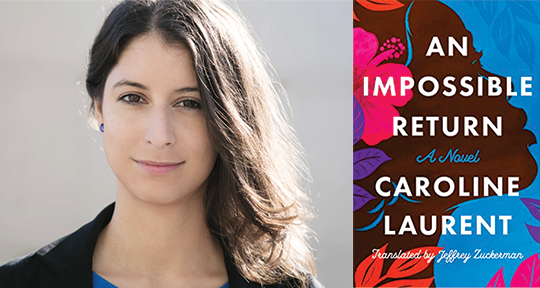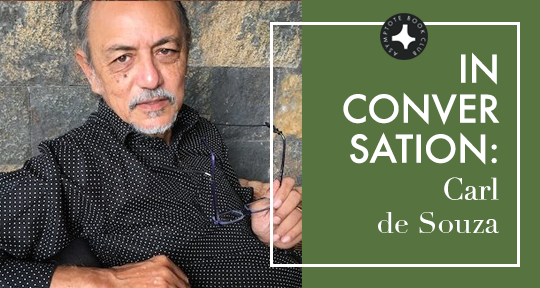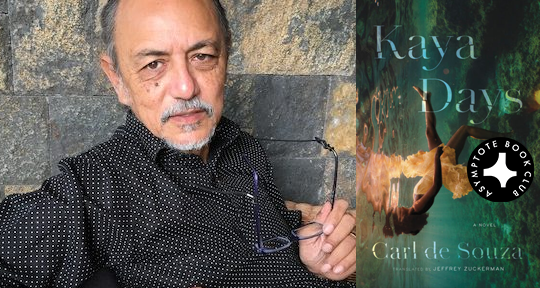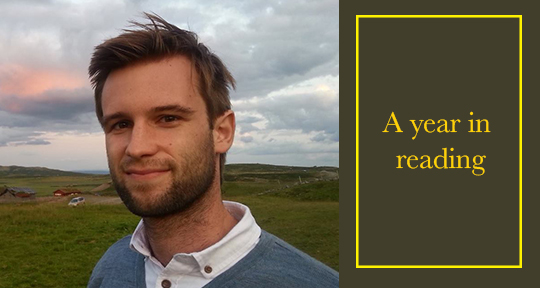Carl de Souza’s Kaya Days is a labyrinthine, densely packed novel, exploring the lives of everyday Mauritians amidst the chaotic days following the death of seggae singer Kaya in police custody. A lush landscape of wealth and poverty, ethnicity and language emerge under de Souza’s hands, guiding the reader through a moment of intense transformation and rupture. Kaya Days was our Book Club selection for the month of September, and Assistant Editor Laurel Taylor spoke live to author Carl de Souza about his response to the novel twenty years after publication, as well as his feelings about how literature can illustrate the fault lines of race and culture. The interview with the translator of Kaya Days, Jeffrey Zuckerman, can be read here.
The Asymptote Book Club aspires to bring the best in translated fiction every month to readers around the world. You can sign up to receive next month’s selection on our website for as little as USD15 per book; once you’re a member, join our Facebook group for exclusive book club discussions and receive invitations to our members-only Zoom interviews with the author or the translator of each title.
Laurel Taylor (LT): In the twenty years since Kaya Days first came out, and during the process of translating the novel, working with Jeffrey—have you discovered anything new about the novel?
Carl de Souza (CD): The novel has served as a good reminder for me, which can be taken in several ways. The first is that such public displays of resistance are persistent in our societies—how overlooked communities tend to go to the streets and set towns on fire because they are not being given their proper share of participation in life. I was reminded of this recently, when I was editing some writing about the local Creole community. The Creole community, as you probably know, is rooted in the slave trade, and this trauma has been self-perpetuating, transmitted unconsciously generation after generation. To this day, this community does not have proper access to the reestablishment of their rights, reestablishment of their education, or full participation in public society. This looks very much like what has led up to the Black Lives Matter movement, for example.
This is quite similar to the idea that people who seem very tame—the term seems pejorative, but it’s really that they have been taught to be tame—suddenly take to the streets because they can’t withstand any longer. And what happened in Mauritius twenty years back is a reminder for us in these difficult days—with the pandemic and the loss of jobs.
And it’s also a reminder of a sort of Proust transition in the way I was writing; in the sense that my previous novels were more figurative, were more plain descriptions of what I had in mind, whereas this novel was something that really burst out of me. At that time, I realized there was no real frontier between prose and poetry in its transmission of emotions.
LT: Mauritius is a really interesting island nation of an incredibly diverse population. Could you talk a little bit about where the novel was coming from, and how those different cultures met each other within the text?
CD: The first thing is to situate the story—and my other stories as well—in the island context. When you’re living on a small island, and there is input from, let’s say, the European colonizers who came for business—sugar, mainly; slavery from Africa being brought in by force; slavery being replaced by Indian indentured labor; and then Chinese people coming in for business, living quite peacefully with everybody else. . . That had been maintained throughout the centuries, in a very peaceful coexistence. READ MORE…







